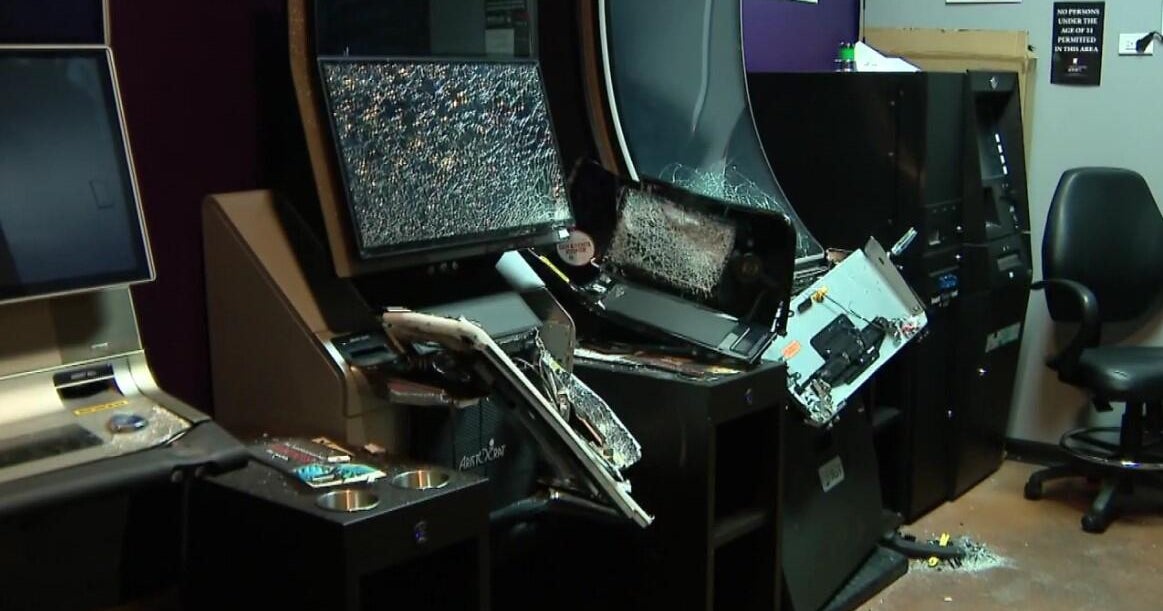Denny's franchisees tap Paycheck Protection Program
Restaurant chain Denny's disclosed in a filing this week that the owners of more than half of its roughly 1,600 franchises had received loans from the government's Paycheck Protection Program (PPP).
Other franchisees of the restaurant brand best known for its two eggs, two pancakes, two bacon strips and two sausage links "Grand Slam" breakfast have also applied to the program and are awaiting loans, according to the Spartanburg, South Carolina-based company.
Denny's is the latest major restaurant chain to be connected to the small business assistance fund, which offers low-interest loans backed by the government to businesses harmed by the novel coronavirus. The loans are forgiven after two years, including their 1% interest payments, as long as businesses retain their workers and spend at least 75% of the money on payroll.
The program is aimed at businesses with 500 or fewer employees, but in setting up the program lawmakers made an exception for businesses like hotel and restaurant chains. They are eligible for the PPP as long as they didn't have more than 500 workers at any one location. That has allowed large chains to apply for the small businesses relief.
Several larger restaurant companies have decided to return PPP funds due to public concerns over depriving genuine small businesses, which have limited means of raising money, of emergency relief aid. Shake Shack decided to return the $10 million it received from the program in mid-April after raising 14 times that amount in a stock offering. And the owner of the Ruth's Chris Steak House chain returned $20 million in got from the relief fund.
But unlike those other chains, Denny's has not applied for any PPP loans directly, instead encouraging its franchisees to apply on their own. Denny's had 1,635 franchised locations and just 68 company-owned restaurants as of last year. The publicly traded restaurant chain had $540 million in revenue last year, while its shares have lost slightly more than half their value in the past three months. That cut the company's market value to just over over $500 million.
"Franchisees representing just over half of total domestic franchise restaurants have received funding under the Paycheck Protection Program with additional approvals and funding pending," Denny's said in its filing with the U.S. Securities and Exchange Commission.
A Denny's spokesperson declined to tell CBS MoneyWatch how much money in total its franchisees had borrowed through the Paycheck program.
"Most of our franchises are small, locally owned businesses that have felt the economic burden this crisis has caused, like so many others," the spokesperson said. "This financial assistance is crucial to their survival and their ability to protect local jobs, and we fully support their individual decisions to apply for and secure economic aid during this time."
Denny's second-largest franchisee, called Den-Tex Central, has gotten a PPP loan. It owns and operates 88 Denny's across Texas and six other states and, before the coronavirus struck, employed a total of 3,300 people across its locations.
Dawn Lafreeda, 59, the founder and owner of Den-Tex Central, said her company has taken a major hit during the outbreak as states banned dine-in eating. Sales are way down, even with take-out. Although Texas's economy is reopening in stages, only 56 of Lafreeda's restaurants are back up and running, and most can only operate at 25% of their former seating capacity.
Lafreeda declined to say how much her company has borrowed from the Paycheck program. She plans on using the money to bring back some furloughed workers and to continue paying others who are unable to return to work for now.
"We are going to lose a ton of money," Lafreeda said. "I am probably going to have to shut some of my locations. I suspect other [franchisees] will as well."
Lafreeda started at Denny's as a hostess in 1977. Her leap into ownership happened during a previous financial crisis. When oil prices plummeted in the 1980s, throwing Texas' economy into a tailspin, Lafreeda snapped up her first franchise on the cheap.
Eighty-eight restaurants later, she now fears for her business prospects as the economy reels under the impact of the pandemic. Lafreeda said remaining profitable will be a stretch with her restaurants operating at a quarter of their usual capacity.
But she is adapting. Her restaurants have switched to paper menus. They have ditched salt and pepper shakers in favor of single use packets. Customers now must pay at cash registers where cashiers stand behind plastic shields.
At some locations, she will be required to force customers to leave their name, address and phone number if they remain in the restaurant for more than 10 minutes — that's in case someone who was at the restaurant tests positive for the virus and authorities want to reach out to others who may have come in contact with the person.
"It's going to be a long recovery," Lafreeda said. "A lot of our business comes from tourism, and our biggest time of the year is the summer. It is going to be rough."




